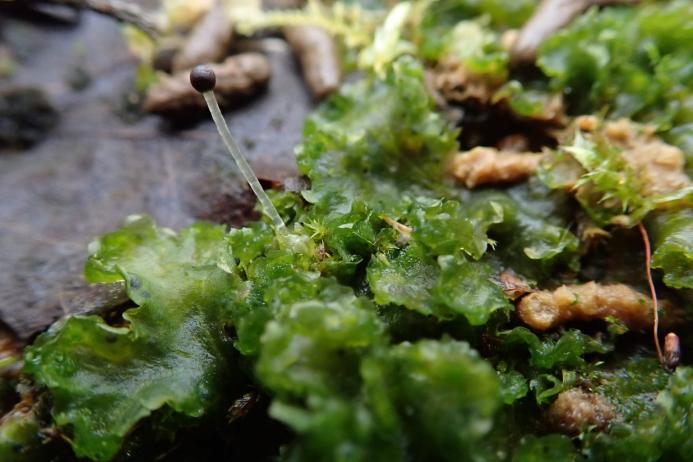Plant species recorded for first time at Tarmac quarry
Exciting discovery of rare species including ‘Weedy Frillwort’ found at Sandy Heath Quarry
A LARGE-scale conservation project at Tarmac’s Sandy Heath Quarry in Bedfordshire, to turn a working sand quarry into land supporting an array of wildlife and nature, is paying off after an exciting discovery.
For the first time in Bedfordshire a liverwort (a small flowerless plant with lobe-like leaves) called Weedy Frillwort, due to its ‘frilly’ yellow-green leaves, has been recorded, along with other rare species of mosses, liverworts, lichens, and fungi. This tiny plant is easily overlooked at just 5mm long.
The discovery was made by local expert plant surveyors in restored areas at Sandy Heath Quarry, which Tarmac and the RSPB manage as part of The Lodge Nature Reserve.
Tarmac are working in partnership with the RSPB to gradually restore the quarried areas into 80 hectares of wildlife-friendly land, providing a home for diverse species and allowing nature to reclaim the land.Progressive restoration of Sandy Heath Quarry started in the 1990s and since the early 2000s, both organizations have been working on the project together.
The restoration of this site has and will continue to create a selection of wildlife-friendly habitats including: large swathes of bare sand, rocks, and cliffs ideal for species such as spider-hunting wasps and solitary bees; a cliff face providing a nesting site for a colony of Sand Martins; woodland (home to a variety of birds); and heathland, where Linnets breed among the Gorse bushes.
The biodiversity and restoration have also seen the creation of acid grassland, including damp grassland areas where the Weedy Frillwort was discovered. Each habitat will encourage insects, birds, reptiles, and mammals to move in.
Peter Bradley, senior site manager at RSPB The Lodge, said: ‘The landscape at the quarry really is quite literally awesome – parts look like the surface of Mars. Helping to bring life to this landscape with Tarmac is truly inspiring, as we work together to produce the many different habitats for nature at this site.
‘The discovery of this liverwort, a first for Bedfordshire, along with so many other rare species, shows how thoughtful restoration of quarries can provide the right conditions for nature to thrive. We look forward to many more years of working together with Tarmac and seeing much more wildlife calling this special place home.’










